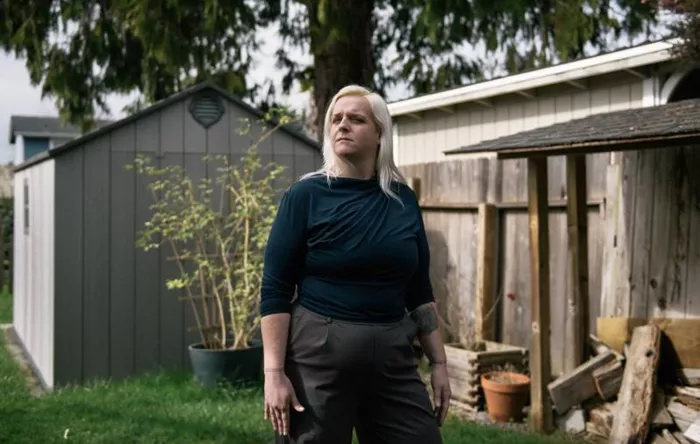Anna Nusslock never wanted to become a symbol in the fight over reproductive rights in California. But when a small Catholic hospital refused her an abortion to end a miscarriage, she found herself facing a tough battle.
She felt her rights were ignored as she lay bleeding and grieving the loss of her twins. Doctors warned that ending the pregnancy was urgent to prevent infection and other dangers. Yet, hospital rules blocked the procedure, according to lawsuits filed by Nusslock and California’s Attorney General.
“I plan to fight this for the rest of my life,” Nusslock said in an interview.
Both lawsuits claim Providence, the Catholic system running St. Joseph Hospital in Eureka, unlawfully denied emergency abortion care. They say the hospital also turned away other women in similar emergencies.
This case exposes limits in California’s abortion protections after the 2022 Supreme Court ruling that overturned Roe v. Wade. It also highlights uneven access to reproductive care, especially in rural areas where many hospitals have closed maternity wards.
Providence denies wrongdoing and says it gave proper care. It argues religious freedom protects its actions. Recently, a judge rejected Providence’s attempt to dismiss the state’s lawsuit, while the civil case is still active.
About 13% of California’s hospitals are Catholic-owned, but they operate 20% of the state’s maternity wards. In rural northern counties, this rises to 35%. Large Catholic health systems include Providence, CommonSpirit, Trinity, and Scripps.
In Humboldt County, Providence runs the only hospital with obstetrics. The next closest maternity ward is 86 miles away on a winding highway.
Last year, Nusslock arrived at Providence St. Joseph Hospital bleeding and in pain. Her water broke at 15 weeks—too early for the twins to survive—and she showed signs of infection and high blood pressure.
Several doctors agreed she needed immediate treatment. But because fetal heartbeats were still detected, Providence refused to act, according to the lawsuit. She was sent home with a bucket and towels “in case something happens in the car.”
Nusslock’s husband drove her to another hospital 20 minutes away, where she began hemorrhaging and required urgent surgery. That hospital has since closed its labor ward, leaving Providence as the sole maternity provider in the area.
California’s constitution protects abortion rights, but religious hospitals are not required to provide abortions if they object morally. State law demands emergency care for anyone at risk of death or serious harm.
Providence said in a statement it does not perform elective abortions but allows “medically necessary interventions” in emergencies, consistent with California law and Catholic ethical guidelines.
The Catholic Health Association did not respond to questions about religious exemptions or hospital expansions.
At a recent court hearing, Providence’s lawyer emphasized religious freedom as the core defense. No court has ordered a Catholic hospital to perform an abortion against its faith, he said.
He argued federal law allows transfers if hospitals lack capacity, similar to faith-based refusals based on beliefs. The U.S. Supreme Court treats religious rights equally with secular rights.
Catholic hospitals follow directives from the U.S. Conference of Catholic Bishops, banning abortions except in very rare cases.
The state’s attorney argued Providence denied emergency care and illegally discharged Nusslock. The law forbids patient transfers for non-medical reasons like insurance status.
Multiple doctors filed statements describing women turned away by Providence during emergencies, risking serious harm.
One doctor at Providence said he was told never to perform pregnancy terminations, even in miscarriage emergencies. Another doctor saw patients come to a now-closed hospital after being rejected by Providence.
Another woman filed a similar lawsuit against Providence. The hospital asked the court to dismiss that case.
Experts say experiences vary widely in Catholic hospitals. Many doctors find workarounds to save lives, waiting until infection or severe symptoms appear before intervening.
Ethics committees led by religious figures decide when pregnancy termination is allowed, based on differing interpretations of Catholic directives.
This approach surprises doctors in secular hospitals, who expect earlier intervention to avoid suffering and risk.
Catholic health care states its mission includes respecting life from conception to natural death and caring for vulnerable groups.
Doctors like Maryam Guiahi say Catholic rules often conflict with modern medical ethics emphasizing patient choice and harm prevention.
In cases like Nusslock’s, ending the pregnancy early is the safest and standard medical option. But Catholic hospitals sometimes restrict doctors from informing patients about abortion as an option.
Withholding this information limits patient consent and may cause preventable complications such as infection and heavy bleeding.
Guiahi said she never saw patients die after abortion denial, but some returned severely ill, needing intensive care.
“To me, medicine is about ‘do no harm,’” she said. “Waiting until someone is sick before acting is rarely right.”
Nusslock plans to leave Eureka for her next pregnancy. She and her husband want children but she cannot bear to be near Providence St. Joseph Hospital without anxiety.
She has been diagnosed with PTSD and hears a constant warning about bleeding to death. She hopes to live somewhere safer, likely in the Bay Area, during her pregnancy.
Her situation reflects a broader loss of maternity care in California. Northern counties have lost a third of birthing hospitals since 2012.
Statewide, 59 hospitals have closed maternity wards, leaving maternity deserts especially in rural, low-income areas.
Nearly 80% of these closures were secular hospitals, increasing Catholic hospitals’ influence over maternity care.
During the court hearing, Providence’s lawyer said the hospital’s main goal is to maintain labor and delivery services for the community.


